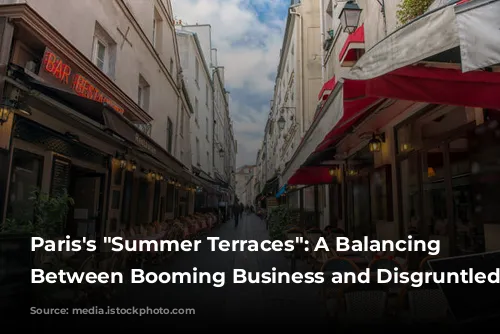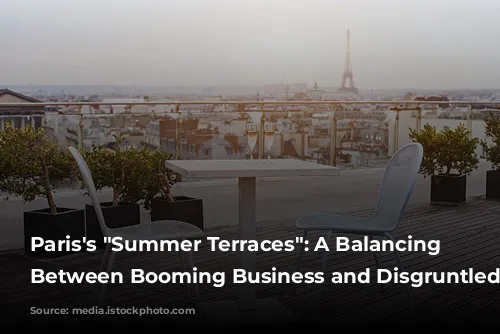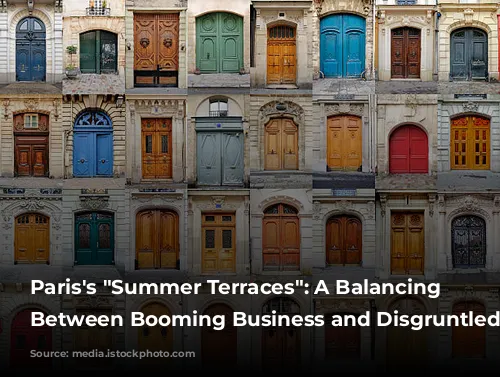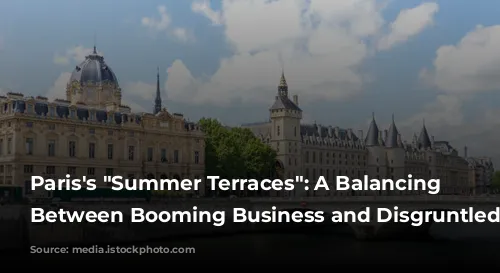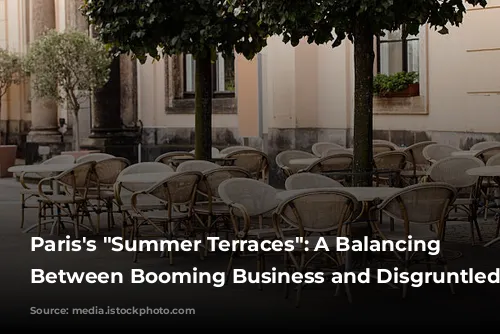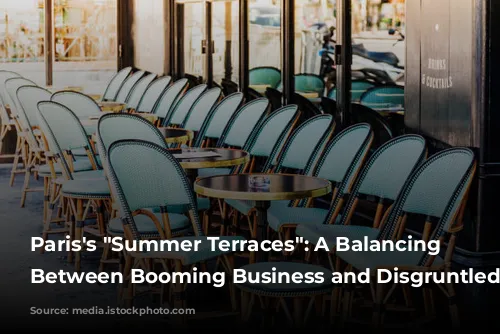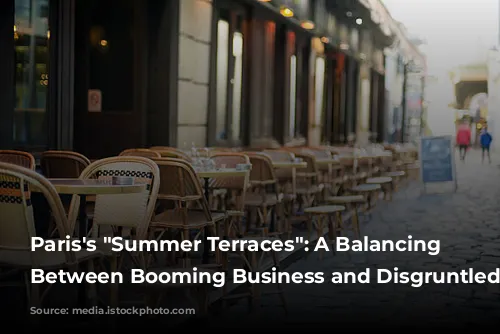Paris, the City of Lights, is known for its charming cafes and restaurants, but recently, the city has embraced a new trend: summer terraces. These outdoor dining areas, allowed by the city’s mayor, have breathed life into once-vacant spaces, bringing joy to many, but also raising concerns for others.
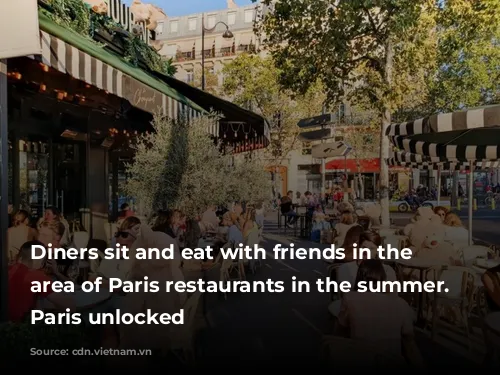
A City Transformed: Buzzing Businesses and Happy Tourists
The scent of freshly baked bread and the clinking of wine glasses fill the air as Parisians and tourists alike gather at cafes and restaurants throughout the city. Summer terraces, with their colorful tables and chairs, have become a popular spot for enjoying a meal, a drink, or simply soaking up the Parisian atmosphere. The bustling terraces have breathed new life into the city, transforming once quiet squares into vibrant social hubs.
From April to November, the terrace season allows restaurants to extend their operations, capitalizing on the city’s beautiful weather. The addition of these outdoor spaces has been a lifeline for many businesses, especially after the economic hardship caused by the pandemic. Restaurant owners, like Salvatore Cantarella, are thrilled with the increased business and the positive impact on their bottom line.
Tourists, too, are embracing the new trend. Claire-Anne Haines, enjoying a drink with friends on a terrace in Montmartre, highlights the allure of these outdoor spaces: “It’s lovely here. The terrace looked really nice when I cycled past, so I told my friends to come.”

A Two-Sided Coin: The Other Side of the Terrace Boom
While the summer terraces have brought economic benefits and boosted the city’s charm, they haven’t come without controversy. Residents living near these vibrant areas have voiced concerns about the noise and disruption caused by the increased foot traffic and late-night revelry.
Eric Durand, a spokesperson for Droit au Sommeil (Right to Sleep), highlights the growing problem: “The situation is dire…Noise grows exponentially where I live…Some of my neighbors have moved. Those who cannot afford to change are forced to close their windows. We want this invasion of public spaces to stop.”
Durand’s words reflect the frustration of many residents who feel their quality of life has been negatively impacted by the terrace boom. They criticize the city’s decision to privatize public spaces for commercial gain, arguing that the beauty of the city is being lost to a sea of tables and chairs.

Finding a Balance: Striking a Compromise
The city government acknowledges the concerns raised by residents while also recognizing the economic benefits brought by the summer terraces. In an effort to find a balance, they have implemented strict guidelines for noise levels and operating hours.
Olivia Polski, deputy mayor responsible for commerce, emphasizes the city’s commitment to maintaining the city’s unique character: “Paris is the city of coffee. They are part of the French art of living.”
Summer terraces, with their charm and potential for economic growth, have become a hot topic in Paris. While the city grapples with the challenges of balancing economic progress with the well-being of its residents, the summer terrace debate is a reminder that finding the perfect balance is an ongoing process.
